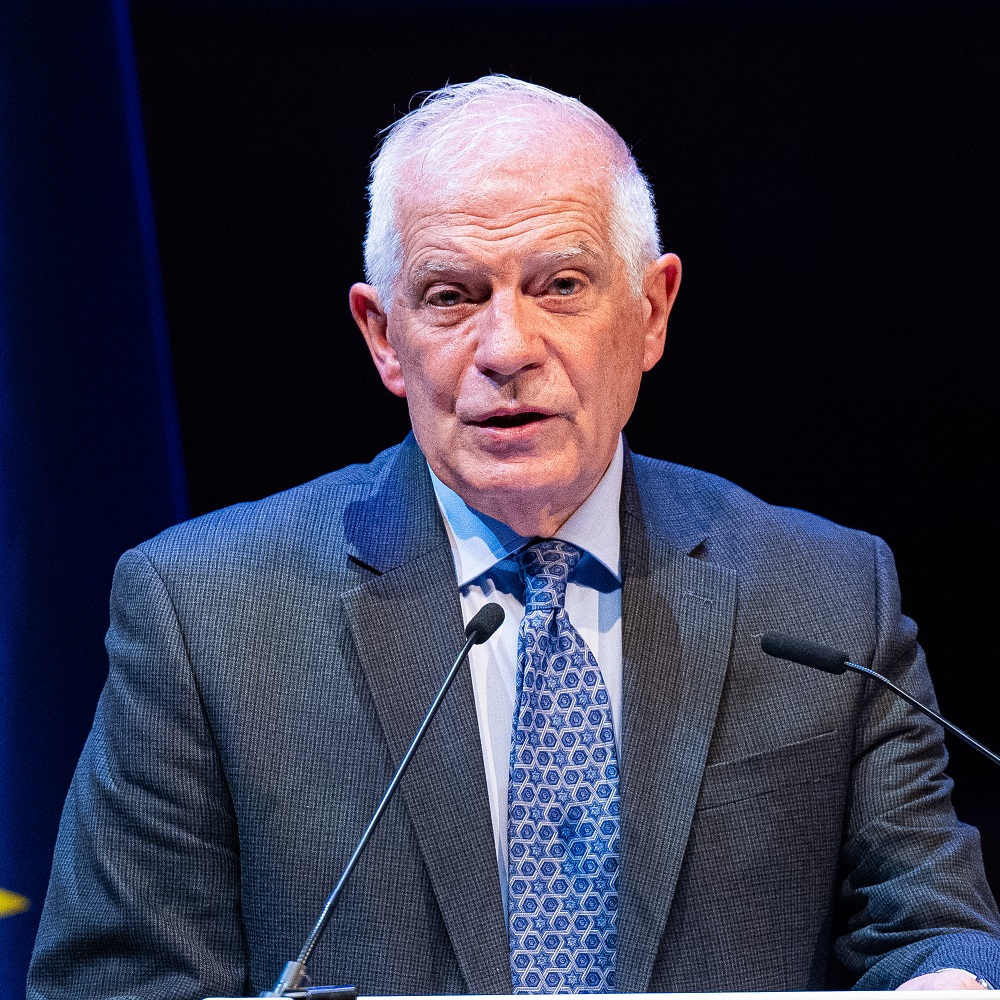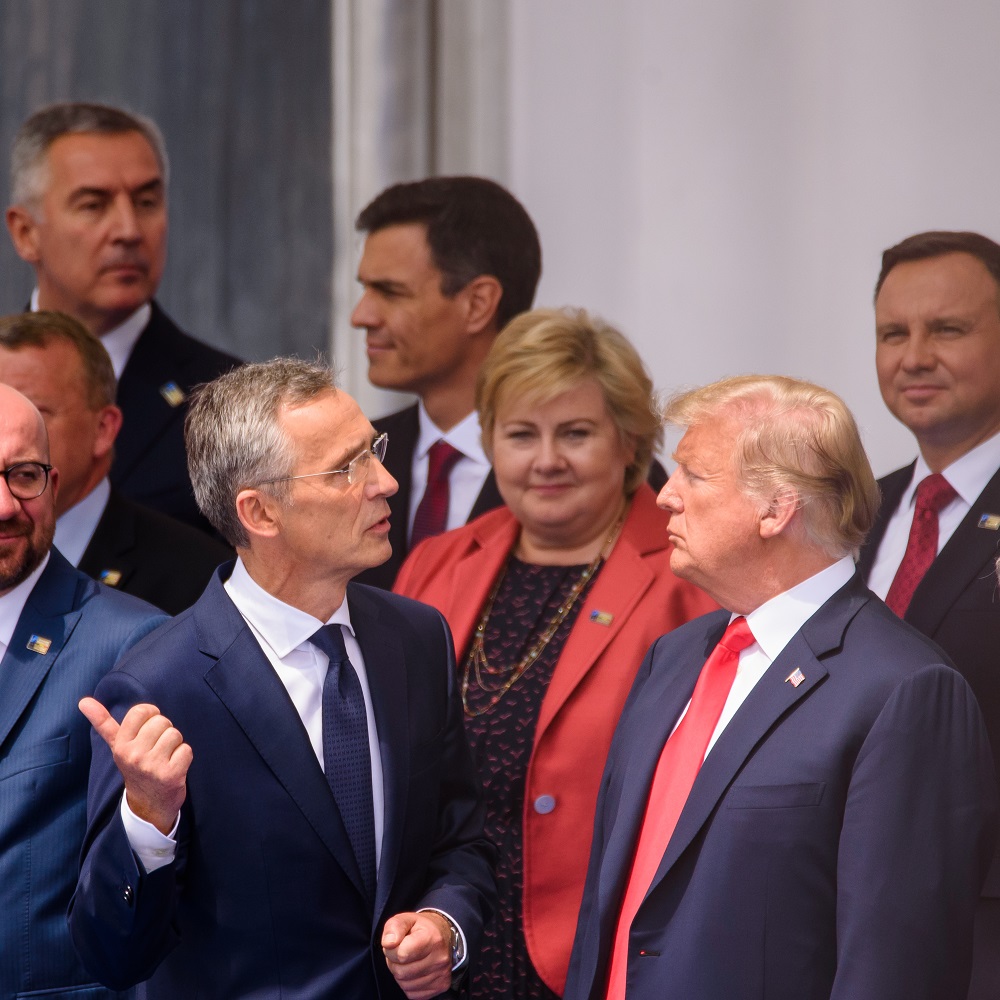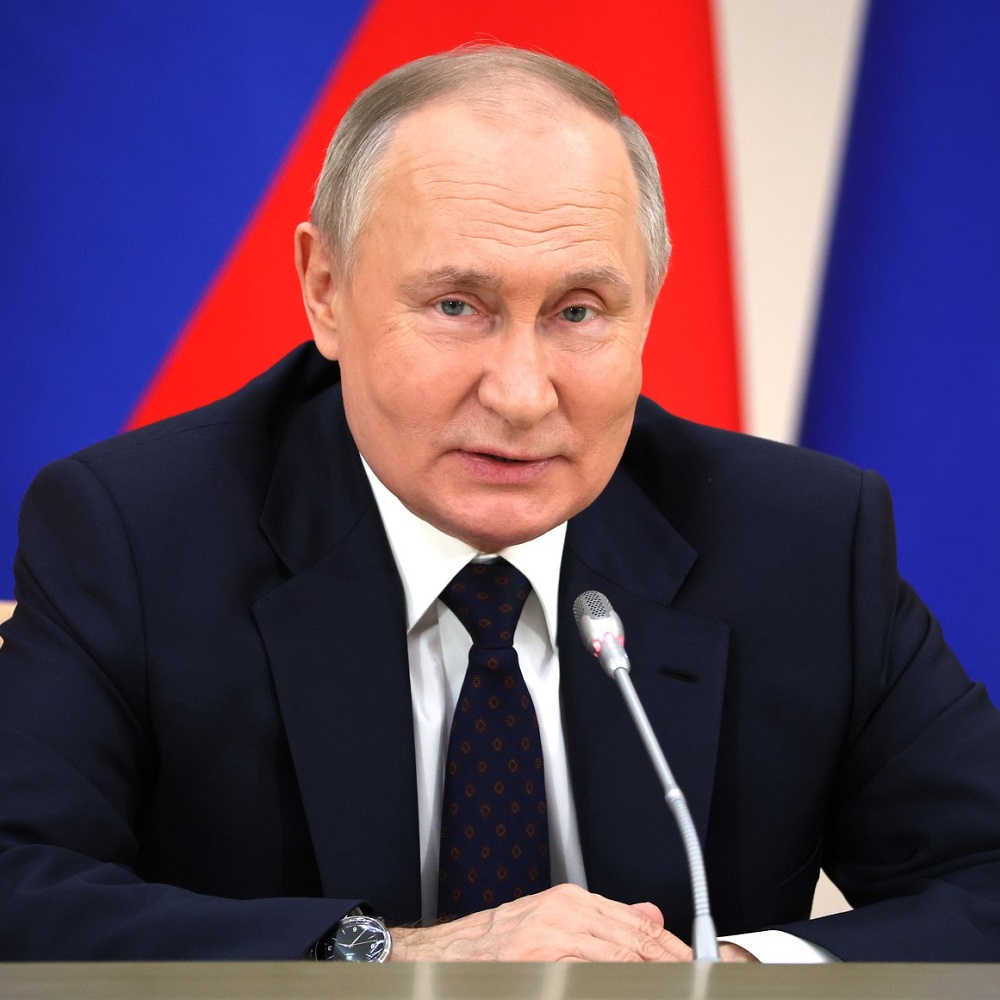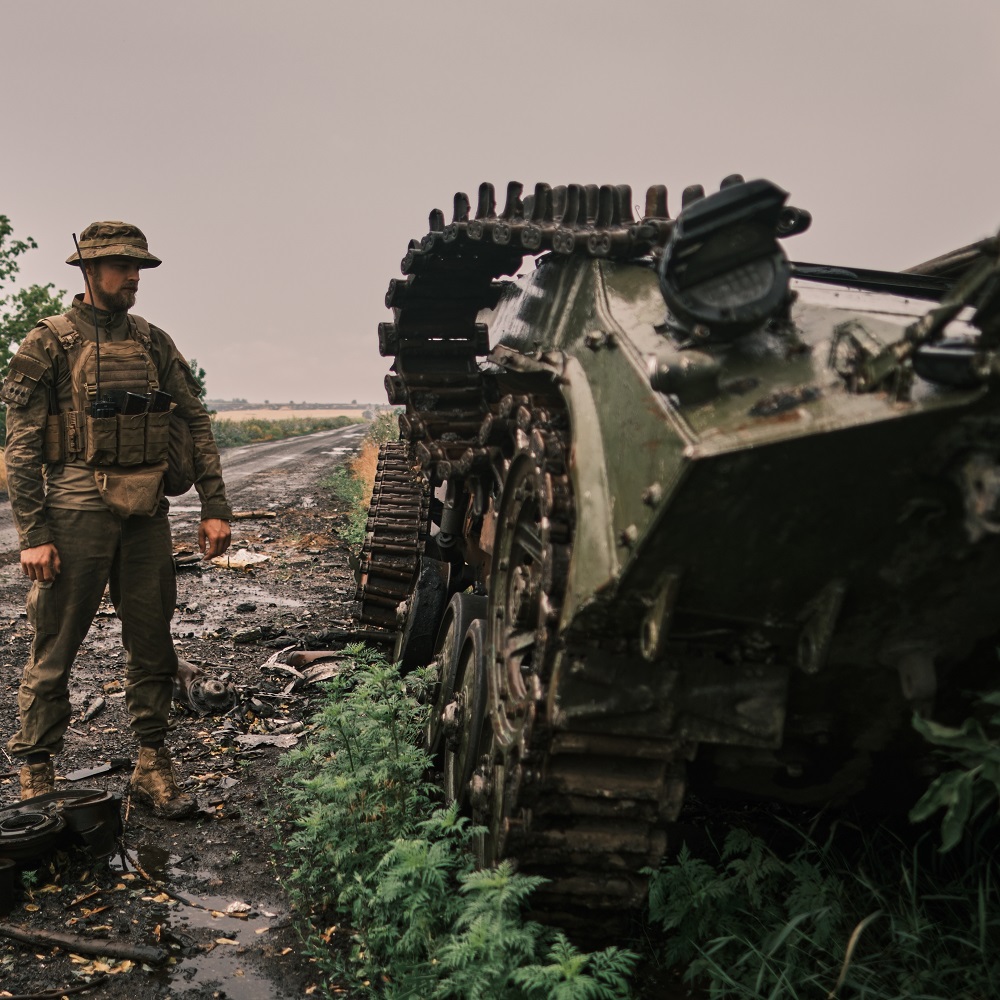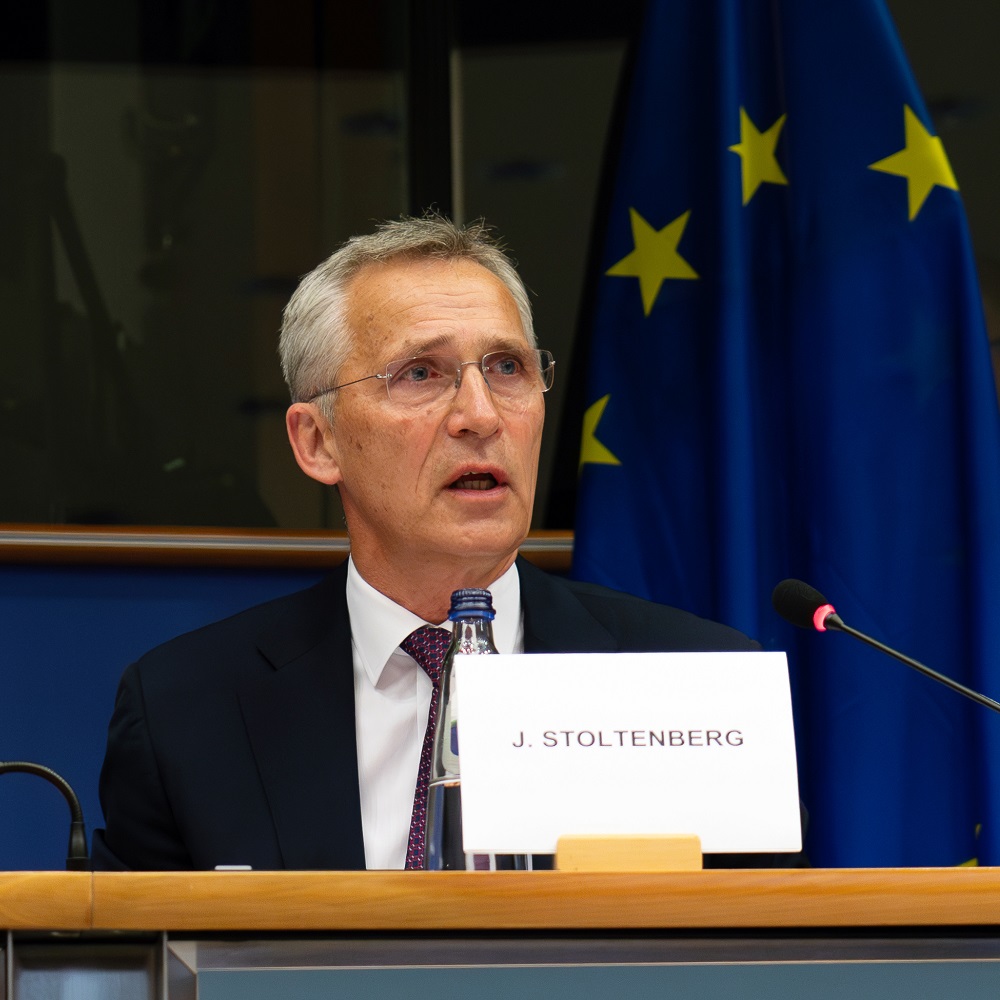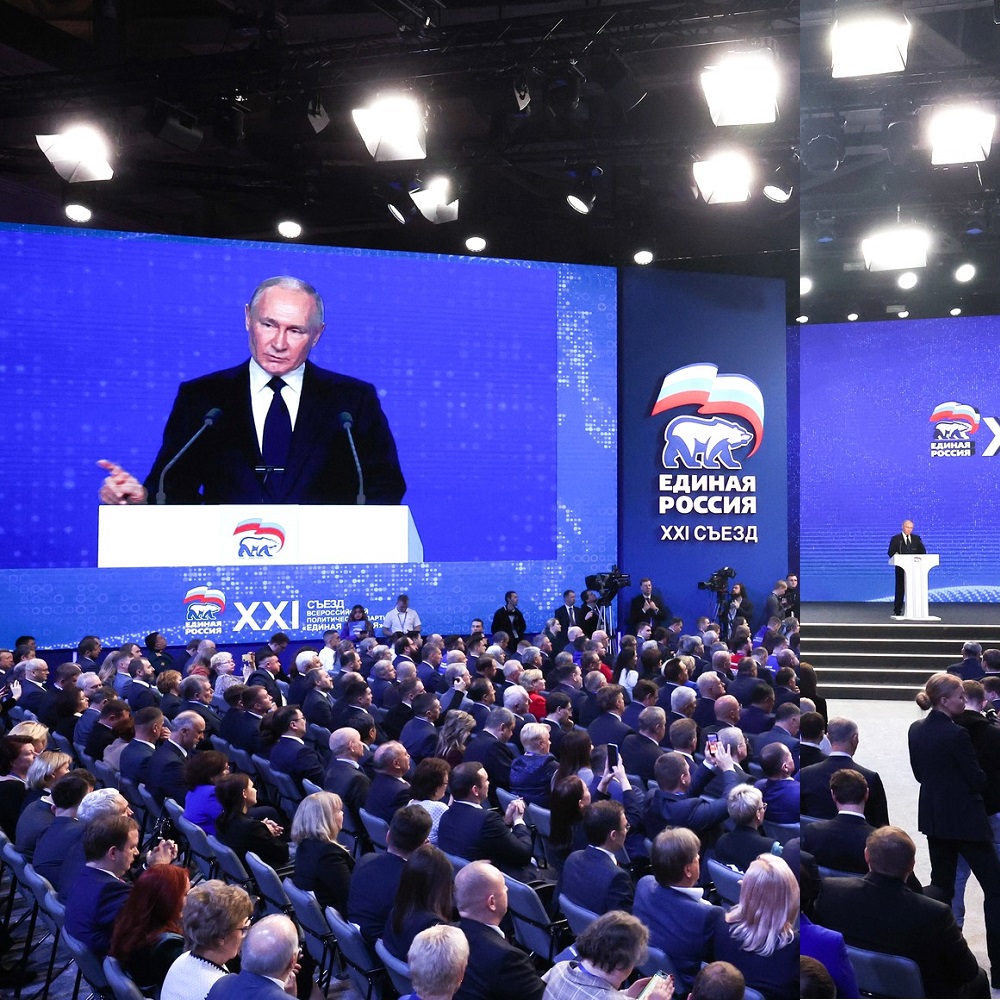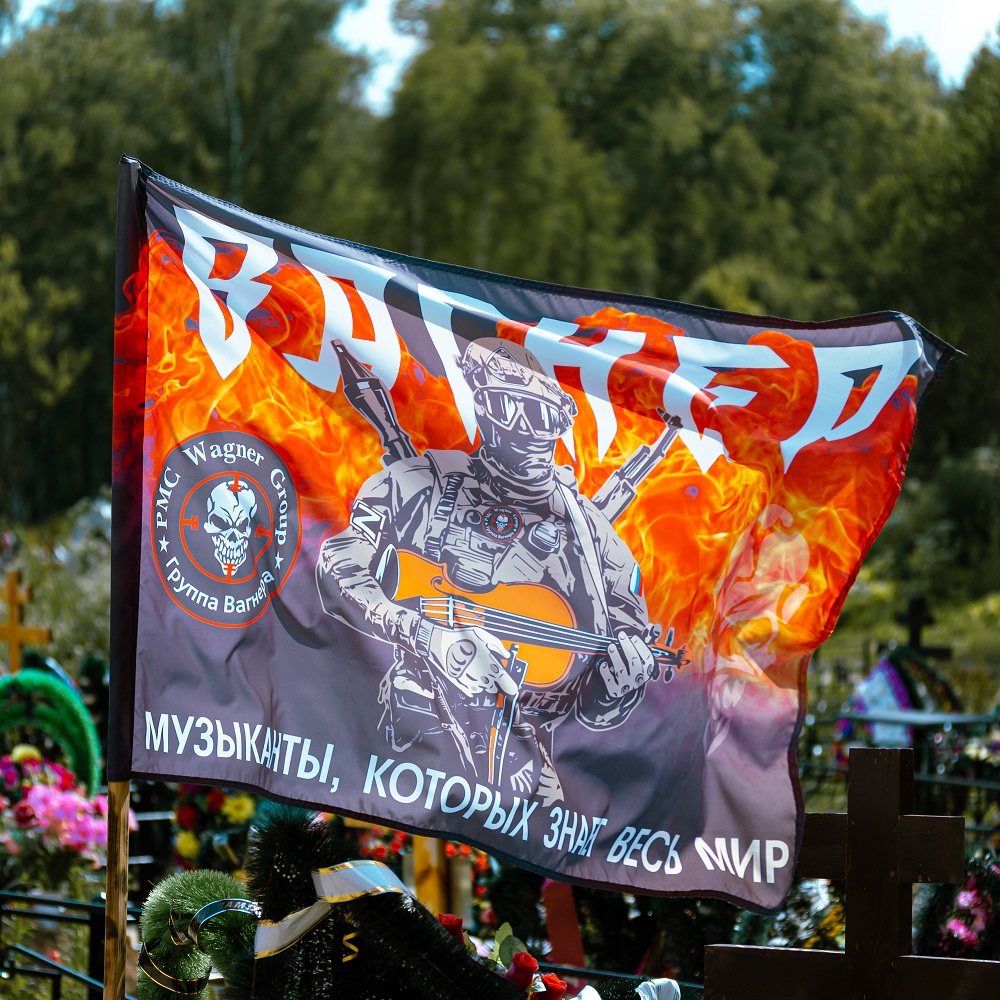Russian Private Military Companies
by Pierre Boussel
President Vladimir Putin's promise to restore order in Russia following the Wagner mercenaries mutiny has been fulfilled. In just a few months, Yevgeny Prigozhin had been sidelined. The Kremlin regained control of the private security market to ensure that previous experiences – "clumsy", in Putin's words[1] – will not be repeated. The official line is now well-established. It claims that the issue of private military companies (PMCs) has never existed in Russia because these activities have never been legally regulated. And it implies that transparency is back and that Russian diplomacy's foreign operations on the African continent and in the Arab world are unconcealed. Since the 2010s, Russian private military companies have worked with regimes that came to power through armed insurrection (Central Republic of Africa, Niger, Mali) and have intervened in the Middle East, particularly in Syria.
Mercenaryism has been an unresolved issue in Russia for almost a decade. The option of following the American model was rejected: it would not have been in keeping with Moscow's tradition to expose state security to the laws of the free market. Since the time of the Tsars, it has been accepted that any question of national security should be dealt with at the highest level in the Kremlin and nowhere else.
When the Wagner company was established in 2014, the authorities did not interfere because of the relationship of trust that existed between President Putin and Prigozhin. The approach may have been illegal, but it had the merit of being realistic. The Russian army needs men. The days of Soviet-era overstaffing are over, and the security apparatus needs to be strengthened with manpower. The country also needs courage. Wagner has shown that far from bureaucratic red tape, a simple company of mercenaries can accompany Russian diplomacy in the Middle East and Africa, helping to increase its strategic depth.
President Putin followed the Wagnerian dynamic by signing a decree [N°370-17.07.15] authorizing the creation of a mobilization reserve for his armed forces a year later. The BARS (Special Army Combat Reserve)[2] are nothing more than the reserve units that exist throughout the world. This would have been the end of the story, were it not for the fact that there is a grey area in this project, at least one that is specific to Russia. The BARS are not just battalions. Some have the financial backing of major Russian companies. Transneft, a wealthy oil pipeline construction and management company,[3] is the financial backer of the BARS-20 battalion, commanded by Sergei Dedov. Employees of the company, particularly security guards, were offered the chance to join the battalion as "volunteers" rather than "mercenaries" in return for a pay rise. Some were sent to fight in Ukraine. The exact number of deaths is unknown, but memorial videos are available on social networks.[4]
The confusion was compounded when it emerged that the list of reserve units included private military companies (PMCs) such as Olkhone and Troie, which are legally banned but still listed for military intervention if necessary. A plan to legalize security companies was mooted in 2018 to address this discrepancy but was quickly rejected. Although the Kremlin made no official statement, it can be assumed that it wanted to retain control over these unregulated and highly lucrative activities – the Russian security market is worth billions of dollars[5] – while taking advantage of the operational ease of ambiguity. Legalization would have led to restrictions that would have hindered the operational flexibility needed in "grey" operations.
Russia officially has 27 private military companies.[6] After the disappearance of Wagner's boss in a plane crash in June 2023, Moscow decided that all players in the security market, without exception or privilege, must register with the Ministry of Defense. As of 1 July, they must keep detailed records of their activities, as well as an inventory of their personnel and equipment.[7] Mercenaryism remains formally banned, unless the "volunteers" are part of a Russian army operation (Ukraine, Syria) or the men operate in close coordination with Kremlin’s diplomacy. In the event of a breach, security companies are liable to a fine and risk being dissolved.
To show the public that nothing will be the same after the Wagner affair, Moscow launched a communications operation with the Chechen militia Akhmat, which has gone to the Defense Ministry to declare its activities. The Kremlin wants to send the message of a return to normality. Official semantics now speak of "volunteer units" rather than "mercenaries."[8] It trivializes the phenomenon by providing aid and support to "volunteers" deployed in foreign theaters. The Defenders of the Fatherland Foundation, headed by Anna Tsivileva and apparently set up under the aegis of the Russian Ministry of Defense, provides administrative and human support to soldiers returning from the front. Their injuries are considered and they are now receiving appropriate follow-up care. The Russian PMCs still exist, but they have fallen into line.
State of Play
The new map of Russian military companies is organized around an entity called Redut-Antiterror, also known as "R Centre" or "Redut." Its name is no coincidence. It refers to the Patriotic War of 1812, when the Russians halted the advance of Napoleon's armies using fortifications known as “redoubts.” These redoubts contributed to the defense of Moscow.
At the outset, Redut was to be a security company like any other, no more and no less than a competitor to Wagner, which dominated the security market at the time. Redut was founded by billionaire Gennady Timchenko in 2006 or 2008, depending on the source,[9] a time when the fate of mercenary companies was being played out in Moscow's chic restaurants, at the tables of retired military officers, businessmen with links to the oligarchs and influential personalities who were able to obtain tacit approval from the Kremlin to carry out such activities.
At first sight, Redut is nothing special. It's a simple PMC (private military companies). Its first employees were former soldiers from the 106th Airborne Division, the 56th Airborne Battalion, the 2nd Special Forces Brigade of the GRU (military intelligence) and the 173rd Special Forces. These are classic, experienced profiles often used to screen recruits. Redut recruits Russian citizens aged between 21 and 50, and the jobs on offer are varied: reconnaissance officers, Vasilek mortar gunners, snipers, medical instructors, logisticians, drivers, etc. Salaries vary between $1,300 and $1,900 per month when the mercenary works in Russia and can reach $5,000 in foreign operations.[10] Although this is slightly higher than what Wagner charges, it can be considered normal for this type of work.
Redut is based in Kubinka, near Moscow, next to the 45th Brigade of the Russian Armed Forces. This is where the mercenaries train.
But on closer examination, Redut is not a PMC like the others. It defines itself as a "military-professional union." This may seem like an odd name, as it brings together two antinomic words, "military" and "union." But that's exactly what it is.
At the very beginning, when Redut was founded, the idea was to create a collaborative organization that would unite Russia's PMCs in the same way that a trade union is a point of convergence for different companies. It was understood that each PMC would retain its autonomy, staff, hierarchy, and funding. By joining Redut, they agreed to work together on an ad hoc basis, pooling their human and material resources to carry out specific tasks. When the mission is over, everyone goes back to their own barracks.
In the 2010s, this idea met with mixed success. At the time, Wagner dominated the security market thanks to generous subsidies. Prigozhin was in such a position of superiority that he didn't see the point of such an initiative. The fall of the Wagner empire brought the concept back into the limelight. The Kremlin has seen fit to promote the organizational model. It has three advantages: a) PMCs become allies in winning contracts rather than competitors; b) the risk of one company establishing a dominant position is virtually eliminated; c) the authorities simplify their chain of command. Should the Kremlin issue a request, for example, to recruit X new volunteers for the operation in Ukraine, it asks Redut, and they will come from the various Russian PMCs that have applied for the operation.
A team of investigative journalists has uncovered this highly unusual organization, reminiscent of the "operations rooms" of armed groups in the Middle East. At the heart of the organization is Redut. Around Redut, the PMCs come and go. [11] They are classified by geographical origin, name, or company affiliation. This is a hodgepodge of disparate groups such as the Siberian Brigade, groups from the Don (Aksai Battalion), formations from the Union of Donbass Volunteers, Gazprom PMCs, and other small, virtually unknown groups such as the Borz Squad or the Imperial Legion.
In the Field
When a mercenary leaves his original PMC to join Redut, the "Military-Professional Union," he joins new units, which have common names: Ilimovtsy, Hooligans, Wolves, Marines, Axes.[12] The system is deliberately flexible and malleable, and therefore very opaque. It's hard to know who is who, who is fighting for what, who is operating under what identity. The administrative procedures are not clear either. Sometimes a mercenary who signs up to fight in Redut signs a contract on a sheet of paper bearing the abbreviation "RLSPI," the initials of the Laboratoire Régional de Recherches Sociales et Psychologiques. According to the investigative website Idel.Realities, the name is a cover for the secret activities of Unit 35555, which is linked to Russian military intelligence.[13]
This labyrinth of truth and untruth, approximation, and mystery are parts of the Redut system. Some of the PMCs involved in the system are easily identifiable. This is the case of the Russian fossil fuel giant Gazprom, a strategic company that, in February 2023, created a private military company called Gazprom PMC, officially to protect its industrial infrastructure in Russia and abroad.[14] The details of the financial package are interesting. The main shareholders are PJSC Gazprom Neft (70% of the capital) and the private security company STAF-CENTER (30%), a company co-founded by former KGB officers Andrey Kuratov, Andrey Timofeev, and Andrey Gavrilov.
Other PMCs are little known because they have only recently been created, such as the "Russian Volunteer Corps," which was created in Mariupol in February 2023.[15] This unit brings together fighters who support Russia's attack on Ukraine. There is also Convoy, founded in Crimea by Sergei Aksenov, which also fights to defend Russian interests.
In the past, the life of a mercenary was a jealously guarded secret. Today, thanks to social networks, it is possible to find out about the daily life of these men, who belong to the most modest and certainly the most confidential of all private military companies. The Convoy Telegram channel describes the daily life of these men on the front line in Ukraine. Here are a few examples:
13.10.2022
A mercenary shoots a video presenting his kit bag. VIDEO.
14.10.2023
"Our fighters inflicted fire damage on the personnel and equipment of the 126th Armed Forces Defense Brigade in the Berislav region."
22.10.2023
An anonymous mercenary's birthday is celebrated with a photo.
25.10.2023
"Our fighters also struck exposed concentrations of enemy personnel in the areas of Aleshkinsky Island and the small railway bridge over the Dnieper. Enemy drones were shot down by Russian air defenses in the Peschanovka area. Over the past 24 hours, more than 110 shells have been fired by Ukrainian forces along the left bank of the Kherson region."
To get a better idea of the profile of this type of mercenary, to "humanize" the fate of those men who decide one day to take up arms, it is worth taking a look at the case of "Shaman," alias David Honda, born in Khakassia, one of many mercenaries. His story reflects this new generation of Russian mercenaries.[16]
When he applied to join Redut, he lied. David Honda claimed to have graduated from the Krasnoyarsk branch of the Higher Police School in 2004, but there was no such school that year. He explained that his non-Russian-sounding surname was given to him by the French Foreign Legion, where he claimed to have served. There is no indication that this information has been verified.
Honda went to fight in Syria. He was sent to the outpost of the 23944 military unit in Khmeimim. This base is the nerve center of the Russian operation, commanded at the time by Colonel-General Alexander Zhuravlev. In 2019, the end of the Islamic State group's territorialization was accompanied by a reorganization of its spheres of influence, and there was much fighting. David Honda was killed in unknown circumstances on 15 June 2019, aged 42. A few weeks later, his body was returned to his family in a zinc coffin, accompanied by a certificate stating, "cerebral hemorrhage due to a fragmentation explosion." The document was signed by Syrian forensic doctors, Brigadier General Ghassan Ali Darwish and Brigadier General Shafik Abas, head of the Zaghi Azraq rehabilitation hospital.
A Mysterious Commander
While it is very clear that Redut operates under the authority of the Russian presidency and the Ministry of Defense, there are still doubts about the company's direction.
Since August 2023, Russian sources have claimed that Andrey Troshev, a retired colonel and former executive director of Wagner PMC, has joined Redut's management team.[17] This choice, which has not been denied by Moscow, seems credible. The officer is no stranger. A veteran of the wars in Afghanistan and Chechnya, Troshev is a graduate of the military artillery school in Leningrad. He left the army in 2012 to join Prigozhin's team. He was decorated with the “Hero of Russia,” the country's highest award.
If confirmed, the appointment would be a shrewd move. It would weaken the current management of Wagner, who no longer has the scent of Putin's sanctity about it, and would strengthen the management skills of Redut, who is now the Kremlin's point man on "volunteer" or "mercenary" issues, depending on your point of view. What is certain is that Vladimir Putin and Andrey Troshev know each other, as newsreels and photographs taken in the Kremlin during an official ceremony confirm.
Wagner's setbacks did not interrupt the meetings. On 29 September 2023, Troshev was officially hosted at the presidential palace. Putin gave him a mission: "You will be responsible for training volunteer battalions capable of carrying out various combat missions, especially in the area of the 'special military operation' [in Ukraine]."
According to Dmitri Polyansky, Russia's permanent representative to the UN, Redut receives no state support.[18] The statement is very clear about there being no direct or indirect link. However, several sources indicate the opposite. In July 2022, a recruiter with the call sign "Kibarda" working at the Trigulyai (Tambov) training center stated that "Redut is a company of the Main Intelligence Directorate."[19] The usually well-informed Russian researcher Anton Mardasov has obtained information that tends to confirm the existence of organic links between Russian military intelligence and Redut. An investigative article by the Warbook journalism platform agrees. It argues that Redut is "fully controlled by the Main Directorate of the General Staff of the Russian Armed Forces."[20]
There is every reason to believe that the Kremlin has reorganized the private military sector based on cold analysis: Wagner was not all doom and gloom. The break came not from mercenary activities but from a leadership position that the iconoclast Prigozhin was intoxicated by. Like any intelligence officer, President Putin had his "return from experience." Ultimately, the Wagner case had the merit of being a caricature that showed the Kremlin what it had to give up and what it had to keep being in a position to make the best possible contribution to Russian influence.
The man responsible for transferring the contracts between Wagner and Redut is the Deputy Defense Minister, Yunusbek Yevkurov.[21] This summer he travelled to Libya and sub-Saharan Africa (Mali, Niger, Burkina Faso) to persuade the regimes to cancel their original security contracts and turn to Redut. The aim is to achieve a gradual and smooth transition. The regimes visited are fragile, either in a situation of latent civil war or victims of recurrent armed uprisings. Russian diplomacy must be tactful; otherwise, China's PMCs, which are as discreet as they are ambitious, will take advantage of Russia's retreat to gain new market share.
Above all, Moscow does not want to give up Wagner's business network in Africa, where security has become more lucrative as the UN and Western forces have reduced their military footprint. When the Wagner empire was at its height, it had 5,000 men in Africa. Business was booming. Estimates put revenues from its mining empire at US$250 million between 2018 and 2020.[22] The company has developed a sprawling presence in every lucrative sector of the economy. In addition to mining and security, Wagner has used its address book to open unexpected markets. In 2021, for example, a company linked to Prigozhin's interests was awarded a lucrative logging concession in the Central African Republic (CAR). The company, Bois Rouge, was granted the right to exploit 186,000 hectares of forest that is home to protected species.[23] Since then, Central African timber exports to the EU have increased by 62 percent, to 11 million euro.[24]
The most important country for Russia in the Middle East is Syria, where Wagner's men have long been present. According to Russian sources, Moscow offered Bashar al-Assad's regime to write off its debt to Wagner if it agreed to trust Redut and use its security services. In the absence of an authentic source, it is impossible for now to know whether Damascus responded positively or negatively. But Redut has real arguments for making its voice heard in Damascus and winning back contracts. It knows the Syrian theater, where it was identified in 2019. Its mercenaries have secured the Stroytransgaz gas installations.[25] Since the regime owes its survival to the Russian intervention in 2015, it would have no interest in persisting in working with a now disgraced PMC.
The pressure is on the shoulders of Wagner's new directors as they try to preserve all or part of the company's heritage. Yevgeny Prigozhin's son Pavel is working with security chief Mikhail Vatanin to keep the group going, but it's not easy. There is a real possibility that the group will disintegrate. In addition to the loss of valuable officers such as Andrey Troshev, who was recruited by Redut to lead the group, mercenaries are leaving the PMC. Men from the 1st Assault Battalion have reportedly already signed so-called resubordinating contracts to join the Federal Service of National Guards of the Russian Federation (Rosgvardiya).[26] The problem of the viability of Wagner's mercenary activities may eventually be resolved. His overall business volume has already taken a hit. In 2022, his revenues fell from US$25 million to US$6.7 million.[27]
Although its laws prohibit mercenaryism, Moscow hopes that the Redut "volunteers" will eventually establish themselves as trusted interlocutors of the Kremlin, without fear of mutiny, including in African and Arab countries where Russia has influence. The idea is to trivialize the phenomenon of auxiliary forces, mercenaries or not, so that they become part of the norm. The Russian press has finally gotten used to this new focus. The very official – and once feared – Pravda reports on it daily. The information is presented not as scoops but as banal events: "Russian Defense Minister Sergei Shoigu's private military company (PMC) Patriot, in competition with Yevgeny Prigozhin's PMC Wagner, has been spotted near Vuhledar in the Donetsk region."[28] For its part, the tabloid press is supporting the movement by announcing the creation of the Borz battalion by Redut, for example. Its only distinguishing feature is that it recruits women for combat roles such as snipers, drone operators and so on.[29]
Conclusion
The reorganization of the security sector seems to have been inspired by an old Russian proverb: "In a united herd, there is no need to fear the wolf." Vladimir Putin has closed the ranks of the PMCs to maintain full use of the famous "grey zone" that states are so fond of using for parallel diplomacy. Thus, when the Deputy Defense Minister, Yunusbek Yevkurov, visited Libya this summer, he added to the Redut dossier the fate of the ports of Benghazi and Tobruk, where the Russian navy intends to make technical stops with the aim to prevent the Turks from taking eastern Libya's maritime infrastructure. The idea is to play down the "shadow soldiers" issue, to strip it of its fictional substance, to give it a simple transactional value, so that Redut is no more and no less than an additional package line that Moscow is offering its partner countries.
REFERENCES
[1] “Putin said that there are no PMCs in Russia,” RIA (ru.), October 5, 2023.
[2] "Why is former Wagner PMC chief of staff Troshev known and why did Putin meet him?” Crimea.Realii (Ukr), September 30, 2023, https://rb.gy/gidk8r
[4] Video on the Russian social network VK, https://rb.gy/knlnlw
[6] “Catalog of Russian PMCs: 37 private military companies of the Russian Federation,” Molfar, 2023, https://cutt.ly/EwYV99sc
[8] “Private military companies required to sign contracts with the defense ministry,” Asia Plus, June 12, 2023, https://cutt.ly/uwYBoVEM
[10] “'La Redoute' to replace 'Wagner': what do we know about this PMC and its leader?,” The Ftimes (Ru), September 5, 2023, https://bit.ly/4aHELf2.
[13] “Who's Who Among Russia's Mercenary Companies,” RFE/RL's Idel.Realities, May 23, 2023.
[14] “Russian Gazprom creates its own PMC - intelligence,” Pravda (Ru), February 7, 2023,
https://t.me/wargonzo
[16] “Without “Shield” - Service and death in another private military company, which does not officially exist in Russia,” Novaya Gazeta (Ru), July 29, 2019, https://www.youtube.com/watch?v=sqaDZUdAN4c
[18] Svetlana Kazimirova, “Which company will replace the Wagnerians in the Northern Military Region: what is Redut PMC, what does it do, when did it appear and who runs it?,” Vesiskitim (Ru), September 5, 2023, https://www.currenttime.tv/a/redut-zk-systema/32632359.html
[21] “Haftar discusses situation in Libya with Russian defence command. Discussions focused on the future of 'Wagner',” CNN (Ar) September 27, 2023, https://foreignpolicy.com/2023/06/28/will-wagner-stay-in-africa/
[23] “Prigozhin structures received 200,000 hectares of forest in Africa,” Activatica (Ru), July 22, 2022, https://www.youtube.com/watch?v=NC-8-xDtKoU.
[27] “Wagner fractures in Syria, Libya amid conflict with Russia's Defense Ministry,” Al Monitor, October 1, 2023, https://www.pravda.com.ua/rus/news/2022/12/28/7382706/.
[29] Anastasia Korotkova, "Created for much more than soups and children." Russian women began to be recruited into combat specialities to take part in the war,” Storage Googleapis, October 23, 2023,











